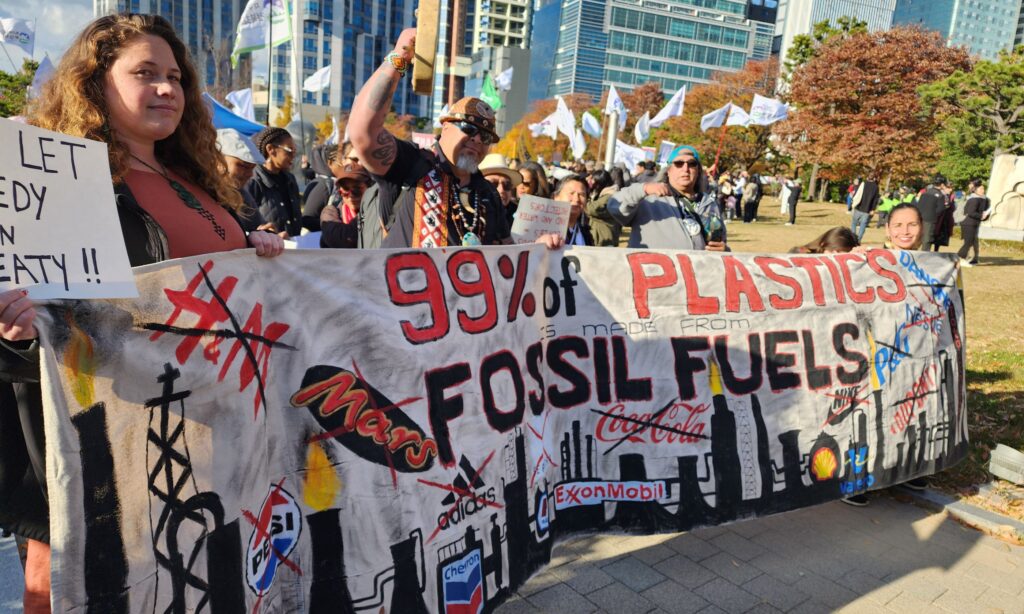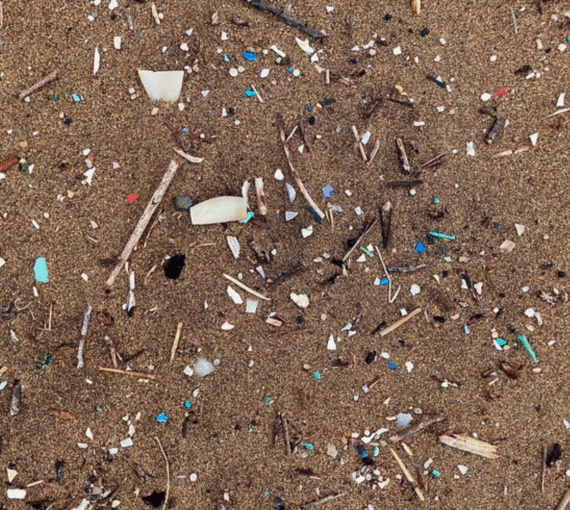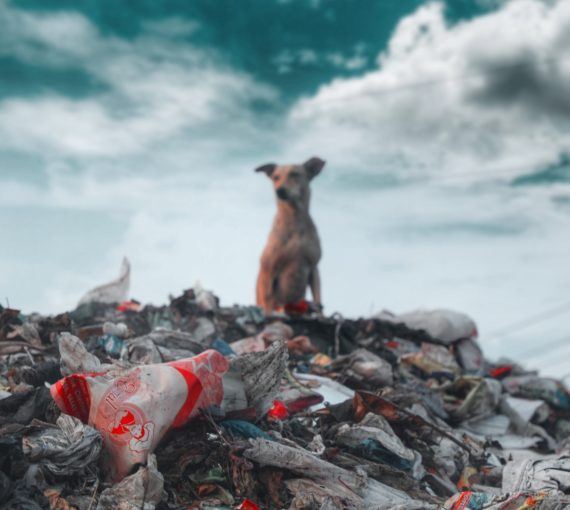
Protestors at the Global Plastics Treaty negotiations in South Korea, November 2024.
A conversation with Lynn Konwaia’tanón:we’s Jacobs
The world needs a plastics treaty that upholds Indigenous rights and knowledge. This article is presented in Q&A format.

Lynn Konwaia’tanón:we’s Jacobs is from the Kanien’kehá:ka community of Kahnawà:ke where she lives and has worked for more than two decades on land and water stewardship initiatives. She is currently a PhD student at McGill University. Her research focuses on the colonial aspects and impacts of plastics to Indigenous Peoples, at all stages of the plastic life cycle, and she is closely following the Global Plastics Treaty negotiations along with her relatives in the International Indigenous Peoples Forum on Plastics.
Q: Why is it important to have Indigenous representation during this process?
Indigenous Peoples are rights-holders, and although this is affirmed in the UN Declaration on the Rights of Indigenous Peoples, the struggle to ensure that these rights are upheld is ongoing. Indigenous Peoples must be active in these international spaces to remind parties of their responsibility to support and uphold Indigenous rights and knowledge in the text. We also strive to build coalitions with civil society so we can try to align our messaging and have a stronger impact when we work together for the transformative change that is needed.
Q: How does plastic pollution impact Indigenous communities?
Indigenous Peoples are disproportionately impacted by plastic pollution at all stages of the plastic life cycle, including extraction of fossil fuels on Indigenous lands, exposure to toxic emissions from production and recycling facilities, plastics in landfills, plastic exports and waste colonialism, exposure to fumes from open-burning practices and widespread circulation of macro and microplastics in the natural environment, affecting traditional foods and the health of all species.
A concerning term being used … is ‘sustainable levels of plastic production.’ There are no sustainable levels of harm to the Indigenous Peoples and other communities that are dealing with the impacts imposed by the plastics industry, and by the governments that continue to support and subsidize this industry.
A concerning term being used by some parties, industry and civil society organizations is “sustainable levels of plastic production.” There are no sustainable levels of harm to the Indigenous Peoples and other communities that are dealing with the impacts imposed by the plastics industry, and by the governments that continue to support and subsidize this industry.
Q: What should people bring from Indigenous knowledge to our understanding of plastic pollution?
Indigenous Peoples bring generations of knowledge based on observation, experience and relationship with the natural world. This knowledge is science, and it must be valued and respected as such. Appropriating Indigenous knowledge and science without full and effective participation of Indigenous Peoples will not produce meaningful results. Instead, Indigenous Peoples must be invited to participate as experts in decision-making on any technical working groups, ad hoc committees or subsidiary bodies that may be developed for implementing the Global Plastics Treaty.
Q: What would you like to see come from the Global Plastics Treaty?
We need global legally binding targets to phase down and eventually phase out plastic production, with clear levels and timelines. The “start and strengthen” approach currently being considered by many countries presents a very big risk of delaying any real action for many years. The Paris Agreement should serve as a learning experience and an example NOT to replicate.
With only a target and voluntary measures to achieve it, emissions continue to rise under the weak measures of the Paris Agreement. We cannot afford to delay action on these global crises. Let’s ensure that we do better this time! We must tackle the plastic pollution crisis from the source and ensure that the Global Plastics Treaty has strong global binding measures and urgent timelines to phase down plastic production, regulate chemicals of concern, ensure a just transition and address all the legacy plastic currently in use and in the environment.

